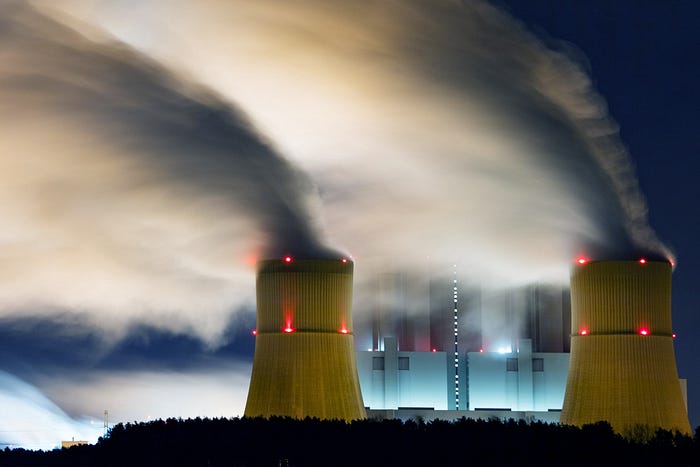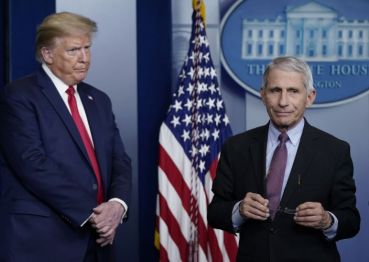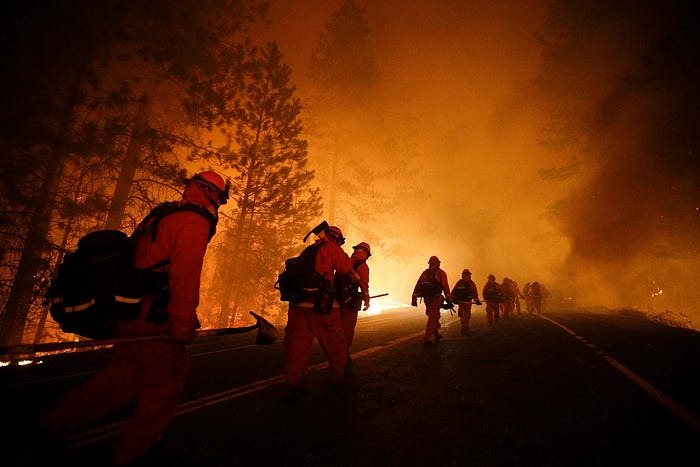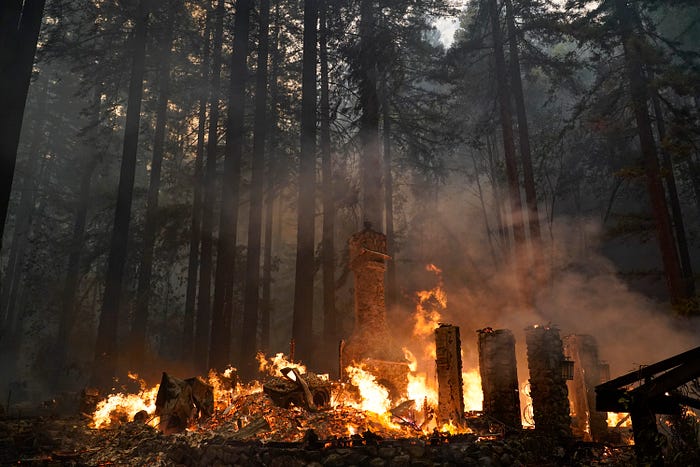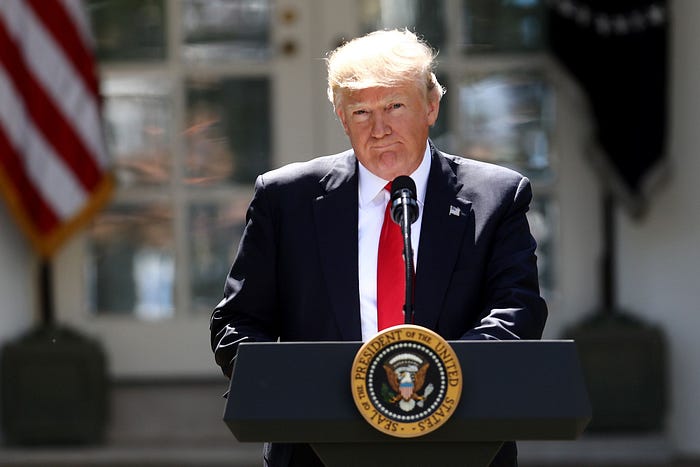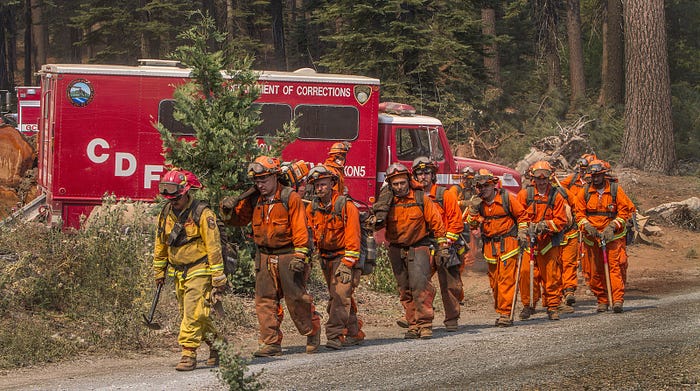“Green” Billionaires Behind Professional Activist Network That Led Suppression of “Planet of the Humans” Documentary
September 8, 2020 Max Blumenthal 350.ORG, Africa, big tech, Bill Mckibben, Bolivia, climate change, climate justice, cobalt, congo, divestment, Eirc Schmoiot, elon musk, Enviromentalism, google, Josh Fox, lithium, Mark Jacobson, Michael Moore, Minig, Naomi Klein, Non-Profit Industrial Complex, Planet of the Humans, Renewables, Sierra Club, Solar, Solar Power, Sunrise Movement, Wind
By Max Blumenthal – Sep 7, 2020
The Michael Moore-produced ‘Planet of the Humans’ faced a coordinated suppression campaign led by professional climate activists backed by the same ‘green’ billionaires, Wall Street investors, industry insiders and family foundations skewered in the film.
“We must take control of our environmental movement and our future from billionaires and their permanent war on Planet Earth. They are not our friends.”
-Jeff Gibbs, director of “Planet of the Humans”
It is hard to think of an American film that provoked a greater backlash in 2020 than “Planet of the Humans.” Focused on the theme of planetary extinction and fanciful proposals to ward it off, the documentary was released for free on YouTube on April 21. The date was significant not only because it was the eve of the 50th anniversary of Earth Day, but because a global pandemic was tearing through America’s social fabric and exposing the human toll of the country’s globalized, growth-obsessed economic model.
Even before “Planet of the Humans” was released, however, the producers of the film had fallen under pressure to retract it. Upon the film’s release, a who’s who of self-styled climate justice activists proceeded to blanket the internet with accusations that it was a racist, “eco-fascist” screed that deliberately advanced the interests of the oil and gas industry. When “Planet of the Humans” was briefly yanked from YouTube thanks to a questionable copyright claim by an angry climate warrior, the free speech organization Pen America issued a remarkable statement characterizing the demands for retraction as a coordinated censorship campaign.
What had this documentary done to inflame so much opposition from the faces and voices of professional climate justice activism? First, it probed the well-established shortcomings of renewable energy sources like solar and wind power that have been marketed as a green panacea. “Planet of the Humans” portrayed these technologies as anything but green, surveying the environmental damage already caused by solar and wind farms, which require heavy mining and smelting to produce, destroy swaths of pristine land, and sometimes demand natural gas to operate.
While major environmental outfits have lobbied for a Green New Deal to fuel a renewables-based industrial revolution, and are now banking on a Democratic presidency to enact their proposals, “Planet of the Humans” put forward a radical critique that called their entire agenda into question.
As the director of the documentary, Jeff Gibbs, explained, “When we focus on climate change only as the thing destroying the planet and we demand solutions, we get used by forces of capitalism who want to continue to sell us the disastrous illusion that we can mine and smelt and industrialize our way out of this extinction event. And again, behind the scenes, much of what we’re doing to ‘save’ the planet is to burn the ‘bio’ of the planet as green energy.”
“Planet of the Humans” crossed another bright green line by taking aim at the self-proclaimed climate justice activists themselves, painting them as opportunists who had been willingly co-opted by predatory capitalists. The filmmakers highlighted the role of family foundations like the Rockefeller Brothers Fund in cultivating a class of professional activists that tend toward greenwashing partnerships with Wall Street and the Democratic Party to coalitions with anti-capitalist militants and anti-war groups.
Bill McKibben, the founder of 350.org and guru of climate justice activism, is seen throughout “Planet of the Humans” consorting with Wall Street executives and pushing fossil fuel divestment campaigns that enable powerful institutions to reshuffle their assets into plastics and mining while burnishing their image. McKibben has even called for environmentalists to cooperate with the Pentagon, one of the world’s worst polluters and greatest exporters of violence, because “when it speaks frankly, [it] has the potential to reach Americans who won’t listen to scientists.”
Perhaps the most provocative critique contained in “Planet of the Humans” was the portrayal of full-time climate warriors like McKibben as de facto lobbyists for green tech billionaires and Wall Street investors determined to get their hands on the whopping $50 trillion profit opportunity that a full transition to renewable technology represents. Why have figures like Google CEO Eric Schmidt, Michael Bloomberg, Virgin’s Richard Branson, and Tesla founder Elon Musk been plowing their fortunes into climate advocacy? The documentary taunted those who accepted these oligarchs’ gestures of environmental concern at face value.
For years, leftist criticism of professional climate activism has been largely relegated to blogs like Wrong Kind of Green, which maintains an invaluable archive of critical work on the co-optation of major environmental organizations by the billionaire class. Prominent greens might have been able to dismiss scrutiny from radical corners of the internet as background noise; however, they were unable to ignore “Planet of the Humans.”
That was because Oscar-winning documentarian Michael Moore put his name on the film as executive producer, alongside his longtime producer, Gibbs, and the scholar-researcher Ozzie Zehner. “Michael Moore validates this film,” Josh Fox, the filmmaker who led the campaign against “Planet of the Humans,” told me. “So if Michael Moore’s name is not on that film, it’s like a thousand other crappy movies.”
By racking up millions of views after just a month on YouTube, “Planet of the Humans” threatened to provoke an unprecedented debate about the corruption of environmental politics by the one percent. But thanks to the campaign by Fox and his allies, much of the debate wound up focused on the film itself, and the credibility of its producers.
“I had some sense that the film was going to ruffle some feathers, but I was unprepared for that response from what ended up being a group of people who are like an echo chamber – all related to the same funding organizations,” said Zehner. “It’s a pretty tight circle and it was a really strong, virulent pushback.”
The line of attack that may have gained the most traction in progressive circles portrayed a convoluted section of the film on the dangers of population growth and overconsumption as Malthusian, and even racist. Zehner told me he considered the attacks opportunistic, but “from a public relations standpoint, they were effective. What we were trying to do was highlight the dangers of a consumption-based economic model.”
The backlash to “Planet of the Humans” also related to its portrayal of renewables as badly flawed sources of energy that were also environmentally corrosive. Many of those attacks painted the film’s presentation of solar and wind to present the documentary as out of date and filled with misinformation.
Oddly, the professional activists who coordinated the campaign to bury “Planet of the Humans” glossed over an entire third of the documentary which focused on the corruption and co-optation of environmental politics by “green” foundations and “green” investors.
As this investigation will reveal, those climate justice activists were bound together by support from the same family foundations, billionaire investors, and industry interests that were skewered in the film.

Josh Fox Planet of the Humans billionaires
Filmmaker Josh Fox
“Censorship, plain and simple”
The ringleader of the push to suppress “Planet of the Humans” was Josh Fox, the Oscar-nominated director of the film “Gasland,” which highlighted the destructive practices inherent to hydraulic fracturing, or fracking. Fox launched the campaign with a sign-on letter calling for the documentary to be retracted by its producers. Then, in an incendiary takedown published in The Nation, he branded Michael Moore “the new flack for oil and gas,” a racist, and “eco-fascist” for producing the film.
As videographer Matt Orfalea reported, Fox’s crusade began the night Moore’s film was released, with an unhinged mass email to online publishers that blasted the documentary as “A GIGANTIC CROCK OF SHIT.” Fox commanded, “It must come down off your pages immediately.”
Hours later, Fox fired off another breathless email to a group of public relations professionals. “A number of reputable websites are hosting this abomination and I need your support in getting them to take it down,” he wrote. The following day, Fox took to Twitter to assure his ally, 350.org founder Bill McKibben, “We are on it.”
Next, Fox organized a sign-on letter demanding the film “be retracted by its creators and distributors and an apology rendered for its misleading content.” Among the letter’s signatories was academic and renewables advocate Leah C. Stokes, who proclaimed her wish in an article in Vox that “this film will be buried, and few will watch it or remember it.”
On April 24, Josh Fox claimed he had successfully pressured an online video library, Films For Action, into removing “Planet of the Humans” from its website. His victory lap turned out to be premature, as Films For Action re-posted the film and publicly condemned Fox’s campaign to drive it into oblivion.
The relentless push by Fox and others eventually triggered a striking statement by PEN America, the free speech advocacy group. “Calls to pull a film because of disagreement with its content are calls for censorship, plain and simple,” PEN America declared.
“Listen, nobody called to censor this movie,” Fox insisted to me. “We asked the filmmakers as part of their community to retract it, because it unfairly attacked people that we know are good, honest dealers and its premise was wrong and false.”
Fox likened “Planet of the Humans” to radio host Mike Daisey’s monologue on visiting the Foxconn factory in China where iPhones are made, and which was retracted by NPR after major fabrications came to light. “It’s clear to me that the filmmakers… put incorrect information into the film that they knew was incorrect. That thing was out of date,” Fox said of the Moore-produced documentary. “And many, many people from within our community reached out to them, which I didn’t know actually, prior to the release of the film and said, ‘This information is incorrect. What are you doing?’”
Fox was particularly incensed at Michael Moore for attaching his reputation to the film. He described the famed director as one of “the bad guys”; “a megalomaniacal multi-millionaire who craves attention unlike anyone I’ve ever met”; “the 800-pound elephant in the room”; the maker of a “racist” and “eco-fascist” film; and “a multi-millionaire circus barker” guilty of “journalistic malpractice.”
“The real bully is Michael Moore here,” Fox maintained. “It’s not me.”
Though Fox and his allies did not succeed in erasing “Planet of the Humans” from the internet, the documentary was momentarily removed from YouTube on the grounds of a copyright claim by a British photographer named Toby Smith. In a tweet he later deleted, Smith said his opposition to the film was “personal,” blasting it as a “baseless, shite doc built on bull-shit and endless copyright infringements.”
As the attacks on “Planet of the Humans” snowballed, director Jeff Gibbs attempted to defend his film. Following an article at The Guardian branding the film as “dangerous,” Gibbs emailed the paper’s opinion editors requesting a right of reply. He told me they never responded. However, just hours after Toby Smith’s politically-motivated copyright claim prompted YouTube to remove Gibbs’ documentary, he said The Guardian reached out to him for comment. “How’d they catch that so early?” he wondered.
A few left-wing journalists tried to push back on the attacks as well. But in almost every case, they were spiked by editors at ostensibly progressive journals. Christopher Ketcham, author of “This Land: How Cowboys, Capitalism, and Corruption are Ruining the American West,” was among those unable to find a venue in which to defend the documentary.
“I have come across very few editors radical enough to have the exceedingly difficult conversation about the downscaling, simplification, and the turn (in the developed world) toward diminished affluence that a 100 percent renewable energy system will necessarily entail,” Ketcham reflected to me. “You see, they have to believe that they can keep their carbon-subsidized entitlements, their toys, their leisure travel — no behavioral change or limits needed — and it will all be green and ‘sustainable.’”
Naomi Klein, perhaps the most prominent left-wing writer on climate-related issues in the West, did not weigh in to defend “Planet of the Humans.” Instead, the Intercept columnist, social activist, and Gloria Steinem Endowed Chair in Media, Culture, and Feminist Studies at Rutgers University was an early participant in the campaign to suppress the film.
According to McKibben, “Naomi [Klein] had in fact taken Moore aside in an MSNBC greenroom” before the documentary’s release to lobby him against publishing the film. Klein later signed Josh Fox’s open letter demanding the film be retracted.
On Twitter, Klein condemned “Planet of the Humans” as “truly demoralizing,” and promoted a “big blog/fact check” of the film by Ketan Joshi, a former communications officer for the Australian wind farm company Infigen Energy.
Mining a green future and burying the cost
Like most opponents of “Planet of the Humans,” Ketan Joshi painted the documentary as “a dumb old bull in the china shop that is 2020’s hard-earned climate action environment.” And along with other critics, he accused the film’s co-producers, Gibbs and Zehner, of wildly misrepresenting the efficiency of renewables.
To illustrate his point, he referenced a scene depicting the Cedar Street Solar Array in Lansing, Michigan with flexible solar panels running at 8% efficiency – purportedly enough to generate electricity for just 10 homes. Because that scene was part of a historical sequence filmed in 2008, Joshi dismissed it as an example of the film’s “extreme oldness.”
However, this February, the solar trade publication PV Magazine found that Tesla’s newest line of flexible solar shingles had an efficiency rate of 8.1% – almost exactly the same as those depicted in “Planet of the Humans.”
While it is true that mono-crystalline solar panels boast a higher efficiency rate (between 15% and 18% in commercially available form), they were also on the market back in 2008. These panels are significantly more expensive than the flexible, less efficient panels, however. And their efficiency levels do not account for the intermittency inherent to solar energy, which does not work well in cloudy or dark conditions.
RELATED CONTENT: Michael Moore Again Predicts that Trump Could Win
Yet according to Josh Fox, the most vehement opponent of “Planet of the Humans,” the planet-saving capacity of solar and other supposedly clean forms of energy was so well-established it was beyond debate.
“The premise of the film is renewable energy doesn’t work and is dependent on fossil fuels. And that is patently ridiculous,” Fox remarked to me. “And the reason why I got into this is because I had young environmentalists – young people who are steadfast campaigners – calling me in the middle of the night, freaking out, [telling me] ‘I can’t believe this!’ And I looked at them and I said, ‘Well, there’s a reason why you can’t believe this; it’s because it’s not true.’”
But was the presentation of renewable energy sources in “Planet of the Humans” actually false? Ecological economist William Rees has claimed that “despite rapid growth in wind and solar generation, the green energy transition is not really happening.” That might be because it is chasing energy growth instead of curtailing it. Rees pointed out that the surge in global demand for electricity last year “exceeded the total output of the world’s entire 30-year accumulation of solar power installations.”
Are there not reasonable grounds then to be concerned about the practicality of a full transition to renewables, especially in a hyper-capitalist, growth-obsessed economy like that of the United States?
A September 2018 scientific study delivered some conclusions that contradicted the confident claims of renewables advocates. A research team measured solar thermal plants currently in operation around the world and found that they are dependent on the “intensive use of materials,” which is code for heavily mined minerals.
https://orinocotribune.com/green-billio ... cumentary/
Much more to this. I had never heard of this film, but then I don't do the social media anymore. We can thank our old comrade chalmor for an early 'head's up' on the draw-backs of some of this tech. It doesn't have to be this way but that's capitalism for ya.
To me the only surprise is that Michael Moore has got anything to do with it. Would have expected him to line up on the other side. Oh yeah, and Max Blumenthal, ditto.


